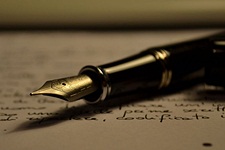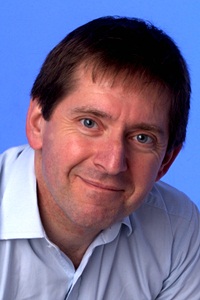
A collaborative novel featuring ten writers.
Complete Novel to Date
THE CLUB FROM HELL
Chapter
TEN, by
Peter Heywood
Scene 1
The match at the Heliopolis Club went into a fifth game, Gamal levelling with his trademark forehand volley-drop into the front right-hand corner.
Weston left the court to towel down, take a drink and reflect on the state of play, and on the state of his body. His three month sabbatical, enforced by the medics back in London, still had two weeks to run. In the beginning, an old friend had fixed him up with a villa in Barbados where he’d been able to swim and snorkel most of the day before eating dinner, prepared by the housekeeper, on the terrace overlooking the sea. He’d drunk no alcohol, read, and retired to bed early with only a painkiller for company.
But then, he’d felt the need for some recreation, something with an edge, something competitive. So he’d come back to part of the world where he’d spent so much of his time in the service on assignment. Somewhere, despite recent political upheavals, where he felt comfortable, connected with history, alive.
Here, in Cairo, he’d kept up a fitness regimen to maybe seventy-five per cent of his potential. Swimming, running and weights at the club, with the occasional game of tennis, and now squash with an old friend and his former squash coach. Gamal was now in his early fifties, but was still more than a match for him.
They resumed their match, watched from the balcony by some youngsters whose parents, he reflected, obviously had the money and the connections, for them to be there. Weston started the stronger, keeping his opponent to the back of the court, but then tired as Gamal’s superior powers of deception began to take their toll. It was their third match in as many weeks but now, he sensed, he was getting closer.
Showered and changed, they sat by the pool drinking iced tea and watching the sun set over the city. They talked business, politics. Then family. Gamal’s family. Weston had none. At least that was his story.
‘So how’s that nephew of yours?’ he said, switching to Arabic. ‘The squash player?’
‘Ah, a fine boy,’ said his squash partner with pride. ‘And a fine coach too. But now, I hear so little from him and see him even less. He left home over a year ago to work abroad. Always on the move, my friend. So many places around the world.’ He paused. ‘Do you know, the last my sister heard from him, he was coaching squash on a yacht somewhere. Can you imagine that? On a yacht!’
Weston smiled and lifted his face towards the setting sun.
When they’d finished their drinks, they picked up their bags and racquet cases and walked towards the reception area.
‘Same time next week, Jim?’ said Gamal.
‘Yes Gamal’ said Weston. ‘Why not.’
He left his playing partner and walked out into the early evening heat.
‘Taxi, Mr. Faulks?’ asked the concierge.
Weston nodded.
Scene 2
Later, in his room at the hotel, Weston retrieved his cellphone from the safe. It displayed a solitary text message from an unidentified number. It read simply: ‘Call Global Trading. Urgent.’
He took a second ‘phone from the safe and connected it to a small electronic device taken from his racquet case. He keyed in a number from memory and listened. There was a click and then a low hum on the line as he heard the call being diverted.
At last, he heard the voice – precise, distant but unmistakable – of the person he most respected in the world.
‘Weston?’
‘Ma’am?’
‘The party’s over.’
‘But, I thought –‘
‘One of our sales force is reporting exceptional activity.’
‘Where?’
‘In the Gulf, although imports from the US are looking up as well.’
‘What about my sabbatical? It doesn’t end until –‘
‘To hell with your sabbatical. I need you on the first flight to Dubai tomorrow. Got that?’
‘Yes ma’am.’
The line went dead.
Next week’s match at the Heliopolis Club was most definitely off.
Scene 3
The following afternoon, Weston found himself sitting in the Dubai offices of Global Trading awaiting the appearance of Dan Thorpe. A stencilled sign on the glass door read ‘Mr. D. R. Thorpe, Sales Director, Middle East & North Africa’.
Weston had been ushered into Thorpe’s office, a scene of uncharacteristic disorder given the true role of its owner in the service. Now, looking from his third floor vantage point towards the Dubai skyline, he sipped at a glass of sweet tea and wondered what sales activity was about to be shared with him.
When he finally appeared, Thorpe looked much the same as ever, slightly dishevelled with dark hair greying at the temples and a stooped posture as he walked towards Weston, hand outstretched. They exchanged pleasantries before sitting opposite each other across Thorpe’s desk.
‘Sorry about the sabbatical, Jim’ said Thorpe. ‘Duty calls, eh?’
Weston gave a wry smile and relaxed into his chair.
‘A week ago, our cousins across the pond shared some intelligence with London about someone they’ve been watching. Someone they believe may be about to take possession of a, shall we say, shipment intended for subsequent distribution – and, presumably, consumption - within the US. They don’t appear to know where the shipment will be handed over but experience suggests it will be at sea. Somewhere in the Caribbean.’
‘What has that got to do with Her Majesty’s Government?’ asked Weston.
‘I’m coming to that’ continued Thorpe. ‘The person the cousins have been watching has connections to someone that London believes could turn out to be a threat to our national security. Someone who, coincidentally, arrived in Dubai just over a fortnight ago.’
He leaned forward and pushed a manila folder across the desk towards Weston.
‘The man the cousins have been watching is called Ivanov. Viktor Ivanov. Born in St. Petersburg. In his mid-50s. Bit of a track record but hardly public enemy number one. That’s his photograph on top of the heap. He pretty much lives on his yacht, the Ekaterina. Registered in St. Petersburg naturally. It’s now in US territorial waters. As far as the cousins can tell, it got there via the Baltic, the North Sea, the Med, North Africa, the Atlantic and the Caribbean, stopping at at least a dozen ports, including London. Quite a holiday cruise – assuming that he’s on holiday of course.’
Weston looked the photograph of a thick-set balding man with a black goatee as Thorpe continued.
‘Ivanov has his family with him. More precisely, wife number three and two children – one from a previous marriage. That’s a picture of his wife, Maria. Looks like an archetypal Russian good-time girl who’s seen better days but there’s something much more interesting about her.’
Weston looked at the picture. It showed a plump, bleached blonde woman in her late 40s, perhaps, wearing a flowered smock. She was standing at what looked like a ship’s rail.
‘Which is?’
‘She’s the elder sister of this man.’
Thorpe pointed out the third photograph.
‘Anatole Grigoriev. Also from Petersburg. And the person we believe now controls the opium trade routes from Northern Afghanistan through Iran and the former Soviet republics.’
Weston picked up the photograph. It showed a clean-shaven athletic-looking man with short dark hair. He was wearing a white shirt and slacks and was sitting under a parasol, holding a cocktail glass up to the camera.
‘He looks a happy soul,’ said Weston.
‘He should be,’ answered Thorpe, ‘Considering the amount of money he must be making. But there’s just one problem. Grigoriev doesn’t just have aspirations to control the global drugs trade. He wants to destroy the West. It appears to be personal, for some reason. That’s what HMG is panicking about. London believes that whatever Ivanov is up to is just a side-show. Grigoriev is the one who pulls the strings. And now he’s sitting in a penthouse suite over at the Burj Khalifa Hotel.’
Weston shrugged.
‘I suppose it makes sense,’ he commented. ‘Big Russian community to provide cover. The cousins not exactly popular in the area for obvious reasons. Just us honest British businessmen left to see fair play.’
‘That’s where you come in,’ said Thorpe.
‘London wants you to find out what Grigoriev’s up to. Whatever happens in the cousins’ backyard isn’t our concern. But how Grigoriev responds most definitely is. And you may just have a way of reaching him. Take a look at the fourth photograph.’
Weston picked it out of the folder. It showed an attractive young woman playing tennis at what he suspected was the Burj Khalifa Sports Club. Long legs, high cheekbones and a pretty good-looking double-fisted backhand by the look of it. She was wearing a white visor with her blonde hair pulled into a pony-tail.
‘Grigoriev’s younger sister, Tatiana’ said Thorpe. ‘Rather different from his older one I think you’ll agree?’
Weston nodded and placed the photograph back in the folder.
‘She certainly has friends here,’ continued Thorpe ‘But seems to spend a lot of her time in sports clubs. Money no object, of course. Tennis, swimming, golf, even the odd game of squash, you’ll be pleased to hear. Speaks four languages that we know of, all of which, coincidentally, you speak fluently. I’m sure you’re more than capable of engineering a casual meeting?’
When Weston had left for his hotel, Thorpe closed his office door and picked up the telephone. He pressed the scrambler and heard the familiar click and hum.
‘Thorpe?’
‘Yes, ma’am. He’s just left.’
A question.
‘No, ma’am, he doesn’t know anything about the runaway on Ivanov’s yacht. Or the private investigators.’
‘Good. Thank you, Thorpe’
He hung up.
Scene 4
It was early evening at the Burj Khalifa Sports Club.
Weston timed his walk past the table by the pool to coincide with that of the white-coated waiter. At an opportune moment, he moved sharply out of the waiter’s path, knocking into the table and upsetting the cocktail glass standing on it. The glass hit the floor with a satisfying crash.
‘Oh, how clumsy of me!’ he exclaimed, turning to the young woman sitting there.
‘I beg your pardon, madam,’ said the waiter on cue, making to pick up the broken glass.
Weston turned towards him and spoke quickly in Arabic.
‘Please get the lady a replacement, Hassan, and charge it to my account.’
The woman spoke in accented English as Weston turned back towards her. ‘Please don’t concern yourself. It was a simple accident.’
By this time, Hassan had abandoned the glass and scuttled away on his highly lucrative errand.
‘Please. I insist. It was completely my fault, Miss - ?’ said Weston, this time in Russian.
She smiled.
‘Grigorieva. Tatiana Grigorieva.’
He extended his hand.
‘My names Faulks. Jim Faulks.’
She hesitated, took it and answered. In Russian this time.
‘You speak very good Russian for an Englishman Mr. Faulks. Are you a member here?’
‘Jim. Yes.’ he said. ‘And you?’
‘Yes. I arrived in Dubai only recently.’
‘Then I insist on helping you feel at home’ he offered. ‘Tell me. Do you play any games, Miss Grigorieva?’
She laughed.
‘Tatiana. Yes, Mr. Faulks. I do play games.’
She looked into his eyes.
‘In fact, I happen to be very good at them.’
About the Author

PETER HEYWOOD is a scientist, a writer and a leadership coach. He discovered squash when he moved to the South-East of England to take up his first ‘proper’ job as a research scientist at a top secret nuclear facility with four courts and a subsidised bar. His career has included spells (as in ‘periods’ not ‘Harry Potter’) in forensic science, pharmaceutical R&D and management consultancy. He recovered from a heart attack to resume playing the game he loves and train as a squash coach. He’s currently writing The Squash Life Book for squash leaders and entrepreneurs. He lives in London within ten minutes walk of his squash club.
Next Up: Chapter ELEVEN by Steve Cubbins
More About This Project
Back To Main


